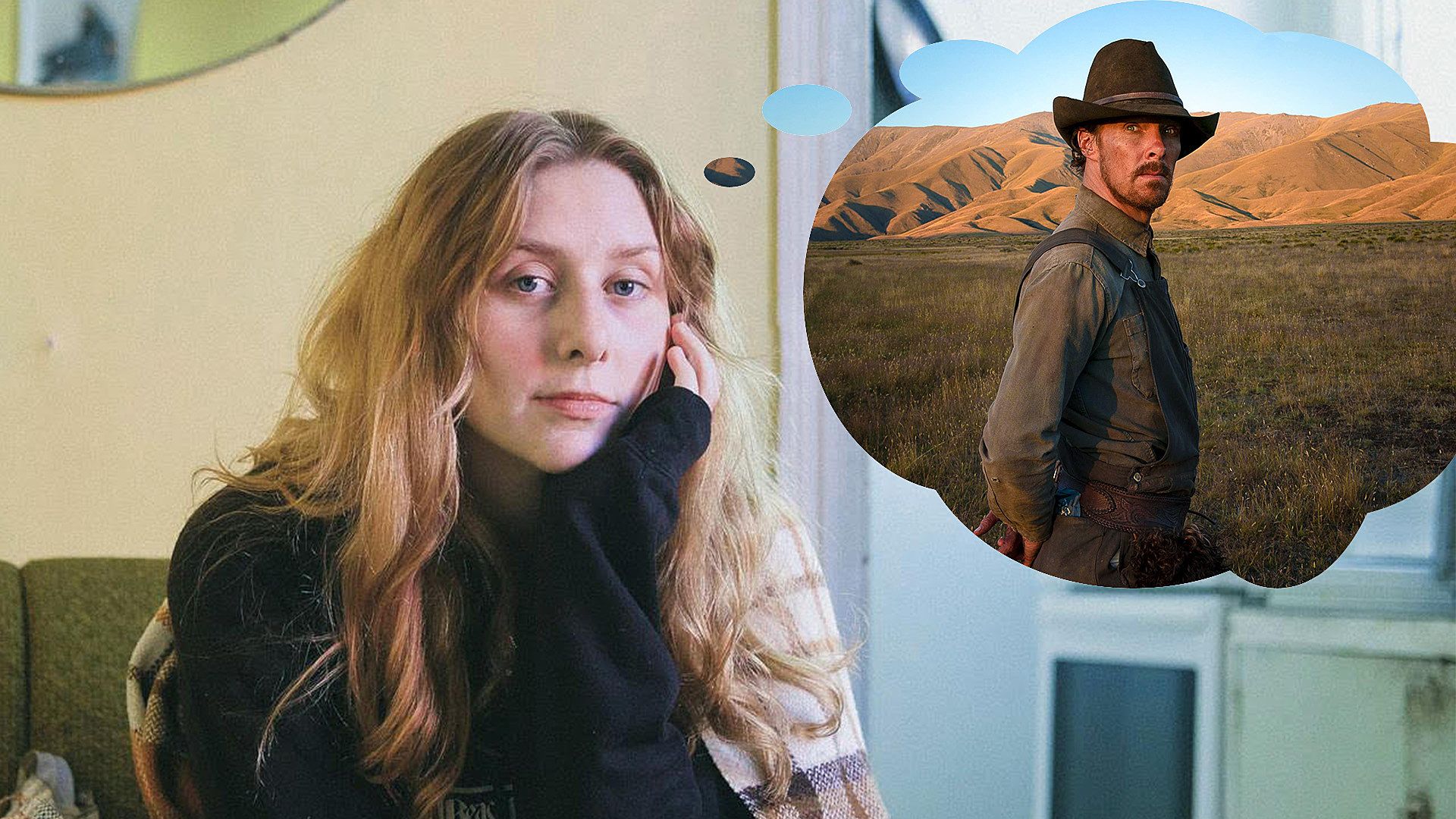Queer Anger, Patience and Vengeance in The Power of the Dog
Film critic Rachel Barker is brought to her knees by the subtle Queer threads in Jane Campion’s The Power of the Dog.
Not often do I end a film on all fours in front of my television, waiting to catch my breath, but Jane Campion’s award-winning The Power of the Dog (available exclusively on Netflix) brought me to my knees in all its understated glory. It is a profound and sensitive Western, arguably with Queer themes (and trust me, I will argue), which has earned her the Best Director Oscar and BAFTA, and Best Picture nominations at both.
Campion’s career has not been without missteps, despite the significance of her success (she is one of only three women ever to take home the coveted Best Director Oscar and only the second Kiwi director to do so). It won’t be news to many that she had a serious slip-up when collecting her Best Director accolade at this year’s BAFTAs. Fumbling a comment intended to highlight her place as the only woman nominated in the Best Director category, Campion compared her situation to that of Venus and Serena Williams. She implied the sisters’ journey to success, as two Black women, was not as hard fought as her own. There was an immense backlash following these comments, for which Campion quickly apologised.
We can hope these stumbles in Campion’s career will lead to a better understanding of microaggressions against people of colour
The BAFTA incident is not the first time Campion has received criticism on the subject of race. In her 1993 film The Piano, the Māori characters exist almost purely as a backdrop to serve the white protagonists’ story. The issue is not that Campion did not tell a Māori story, but that when she did include Māori characters, the depictions seemed rooted in colonial mythologies of native, ‘tribal’ life. Bringing tangata whenua into the pre-production process could’ve easily avoided this. On-screen representation becomes much less meaningful when not backed up by Indigenous knowledge-holders and creatives participating in the filmmaking process.
Campion is an immensely talented and intelligent woman, but she has listening and learning to do, like many of us. We can hope these stumbles in Campion’s career will lead to a better understanding of microaggressions against people of colour and a conscious effort toward better representation in her work.
The film’s focus on masculinity feels, in and of itself, a call-out to contemporary culture in Aotearoa
Although 1920s Montana, USA, is the setting in The Power of the Dog, its connection to Aotearoa seeps out in nearly every aspect of the film. Filmed here, with many local crew working behind the scenes, you may spy some familiar faces, such as Thomasin Mackenzie or the under-utilised Cohen Holloway. Aside from the cast and crew, the rolling hills of central Otago intertwine with The Power of the Dog’s themes of isolation and freedom. The brooding central character, rancher Phil Burbank (Benedict Cumberbatch), sees the titular barking ‘dog’ in the mountain range. The dog, a shadow in the hillside shaped like a dog's head, calls to him and shows him he belongs there, as only he can see it.
The landscape is harsh and rugged, with the Hawkdun Range creating a monumental backdrop and highlighting the softness of Rose (Kirsten Dunst) and her son Peter (Kodi Smit-McPhee), who are new to the Burbanks’ ranch. The film’s focus on masculinity feels, in and of itself, a call-out to contemporary culture in Aotearoa. For decades our country has been plagued by domestic abuse, high suicide rates in men and insidious lessons in manhood that only serve to harm younger generations. These themes are relevant in modern Aotearoa and, though subtle, are undoubtedly present in Campion’s The Power of the Dog. Phil berates his brother George (Jesse Plemons) and ceaselessly torments George’s new wife, Rose. You can easily picture him telling Rose’s son Peter to ‘harden up’ rather than telling him, as he does, not to act like ‘a sissy’.
Queer undertones ripple through the film, even without moments of explicit connection between the two potentially Queer characters
And with masculinity running throughout, this brings us to the complex exploration of Queerness and femininity in an otherwise typically ‘male’ film. Phil is a tobacco-chewing, gun-toting, curled-lip cowboy, but a new narrative surrounding these characteristics develops as the film delves further into his background. He discusses his mentor, Bronco Henry, an older man who taught him everything he knows, including showing him pornography for the first time and potentially showing him how to use it. It is clear that Phil idolised Bronco Henry before his early death, maybe even loved him. There are two distinct takes on the relationship alluded to here: a young Phil fell in love with another man, but his inability to accept and explore this causes him to punish the femininity he encounters in others. Or he was groomed by an older and more powerful figure, and in taking Peter under his wing is continuing the cycle of grooming.
Queer undertones ripple through the film, even without moments of explicit connection between the two potentially Queer characters. Campion’s notoriously tender direction and screenplay explore this with such subtlety that it may even go unnoticed by some viewers (hi Dad). That nuance is incredibly important, in order to not demonise the men in question. It is crucial to have ‘good representation’ of Queer people, in the sense that it presents them in a realistic and positive light. But representation that successfully highlights moral ambiguity and more complex issues across various communities is also essential. Whether you want to see Phil as a Queer man overcome with internalised homophobia, or a victim of grooming, what’s important is that both of these takes are asking the right questions about male toxicity and how it begins to develop. The character himself may not be ‘good’, but he is a necessary examination of an unpleasant cycle rarely addressed in male-centric media.
Having the final victor in a Western be a quiet, fem and possibly Queer boy is a liberating and exhilarating resolution
Peter is an effeminate boy, first seen making paper flowers and crying in his mother’s arms. It is hard to say whether he is coded as Gay or just feminine. Either way, he does not belong in this harsh Western world. Eventually (significant spoilers ahead), Peter takes advantage of Phil’s attempt to mentor him and teach him the ways of the ranch, and uses this developing closeness to expose Phil to anthrax. In his arrogance, Phil believed that they had developed a relationship surpassing that of Peter and his mother, but as we all know, you can’t keep a Gay boy and his mamma apart. In infecting Phil, Peter can finally relieve Rose of his torment.
Having the final victor in a Western be a quiet, fem and possibly Queer boy who uses his own perceived naivety against the traditionally masculine lead is a liberating and exhilarating resolution. It's rare to see characters like this triumph on screen or even in our real lives, which are in many ways still built for the ‘traditional man’. And this returns me to my earlier discussion of good representation. Peter is ultimately a murderer. Some would argue that this isn’t the positive Queer representation that we should be consuming. It's a representation of Queer anger, patience and vengeance. Or, depending on how you look at it, feminine vengeance. As does Michaela Coel’s incredible I May Destroy You, The Power of the Dog explores territory we are often uncomfortable with and feel guilty for, or ashamed of, desiring. It is a revenge fantasy on masculinity itself. And to me, that is good representation because it's honest and unashamed of its desire to see those who have held female, fem or Queer people down finally facing our wrath.
Feature image: Anastasia Burn

